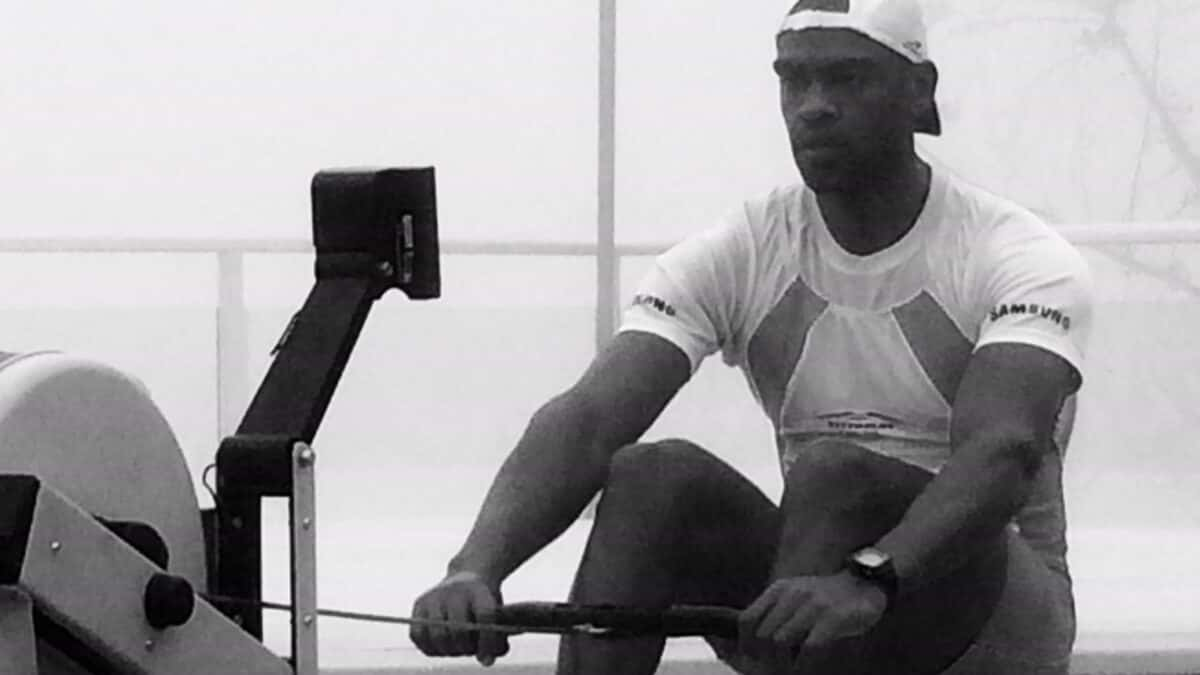
24 Mar 2020
How to cope with training alone
From quarantines to self-isolation, the global response to the COVID-19 virus is affecting everything about the once predictable, familiar rhythms of daily life. Athletes – even those at the elite level – are no exception.
With the banning of large gatherings and the shutting of schools a reality in a growing number of nations, the new normal for athletes is training at home, alone.
World Rowing reached out to Canadian sports psychiatrist, Dr. Carla Edwards, to find out more about the implications for athletes’ mental health. She shared her recommendations on how athletes can get through these difficult times and even emerge mentally stronger and more prepared on the other side.
Facing fear
“Many athletes have a lot of fear for themselves and their future in sport,” says Edwards, who works with athletes at all levels of performance in Canada, a country that recently closed its boarders in an attempt to contain the virus’ spread.
“For young adults, they are usually progressing in their sports careers and the more elite focused athletes at this stage are looking towards under 23, senior teams and maybe even a first shot at the Olympics,” says Edwards.
“Some of them are trying to manage university, applications, exams, professional school or work as well as training. This is also the generation with older grandparents and the risks to family members’ health becomes a bigger fear as well.”
“Significantly, it is these young international-level athletes that already show the greatest concern surrounding their future careers in elite sport,” she says, noting that older athletes – Olympians who have been to a Games already – may be better able to put the current situation into a broader context as just another adjustment in the overall trajectory.
“It’s normal to be afraid right now,” says Edwards, “but shifting your frame of reference will help your mental health.”
Stay connected
“Losing something as central in your life as the rigorous routine and schedule of sport can cause general anxiety,” says Edwards. “The degree of disruption and anxiety is going to be far less for those who already have – or can create – a sense of balance.”
Strong social networks of friends and family as well as interests outside of sport are all part of a balanced life.
“Take a realistic look at your life and ask: What are the big things? What are the little things?” she suggests. “For most, the big things are societal health, doing what we can to restrict the growth of this pandemic, ensuring we have food, water, leisure time, and human connection.”
Even during social isolation, maintaining contact with others is essential, stresses Edwards. “The internet can help,” she says. “But we have to use it wisely. If we use it to stay connected and use opportunities to engage with our friends, not just for work, but to have actual conversations, that will help.”
“Meditation and relaxation exercises can also be helpful in staying connected to the present,” she adds.
Other important connections for athletes will be keeping in touch with coaches, support team members, and teammates. This, says Edwards, is where it is time to get creative.
Keep an open mind
Adopting an open minded and flexible approach, according to Edwards, is one of the most effective ways to manage many of the negative impacts on mental health from big changes like suddenly having to train alone.
It is without doubt not always going to be an easy transition for athletes – or coaches and organisations for that matter – so for Edwards, reframing the situation is key.
“This is a good time for athletes to learn to become more autonomous,” says Edwards. “Having to take instructions and doing the work on their own will be good for their autonomy. It is also going to develop a cohort of athletes – in all sports – that understand more than ever what they can push their bodies and minds to accomplish. That alone is going to change how we do things once this is all over.”
“This pandemic is giving us experience in how to think and act differently,” Edwards continues. “Flexible thinking is the only way forward in all sectors from government to business to education and definitely sports. For example, here at our medical school we are re-writing the entire curriculum to be delivered in a new way.”
It’s okay to ask for help
“For those having difficulty, it is okay to ask for help,” says Edwards. “If you can’t come up with a training plan alternative, reach out to colleagues, friends or even your competition. This is a time for cohesiveness and sharing. We see this in a lot of places already, people opening up to suggestions. Federations can help by creating hubs online where people can share ideas.”
For rowing-specific ideas about training in the era of COVID-19, join World Rowing’s Facebook group where you can share and learn from what’s being done around the world. Some of the best will be featured on or website throughout the pandemic.
https://www.facebook.com/groups/231816978004059/
For athletes, coaches and support team members facing big changes in how they operate and train, click here for a pamphlet produced by Dr. Carla Edwards and Dr. Jane Thornton with more information.

